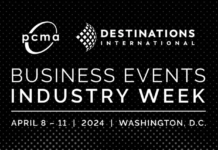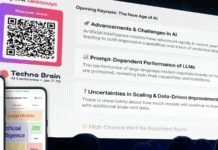 Event planner salaries vary depending on numerous factors, from whether you have direct reports to certifications to the type of organization you work for. Data from the latest event planner salary survey can help you see how your salary stacks up compared to your peers.
Event planner salaries vary depending on numerous factors, from whether you have direct reports to certifications to the type of organization you work for. Data from the latest event planner salary survey can help you see how your salary stacks up compared to your peers.
If your job title is “event marketer,” you likely are making something in the range of $128,000, while your event planner peers earn an average of around $85,000. When the Professional Convention Management Association (PCMA) surveyed almost 850 business event planners for its most recent event planner salary survey, the overall U.S. average may have been $97,130, but your specific title, credentials and work history may put you well to the north or south of that number.
Here are a few factors that can have a big effect on business event planners’ paychecks:
Organization type: Those who work in a corporate environment (19% of those surveyed) tended to make more than their association-based peers (59% of those surveyed), with corporate event planner salaries averaging $91,289 and association event planners earning an average of $89,416. While their numbers among those surveyed constituted a much smaller sample size, non-profit meeting professionals (13%) and professional conference organizers (6%) earned an average in the neighborhood of $86,500 to $89,000 plus. Moving down the salary scale, planners in association management companies earned an average of $81,213, while independent planners made just over $77,000 on average. At the lowest end of the scale were those who worked in educational organizations, earning an average of just over $75,000.
Job title: Not surprisingly, those bringing in the largest average salary, $132,500 were those on the executive/VP level. Presidents/CEOs earned an average of around $89,000, followed by directors at almost $98,000, owners at $83,771, meeting designers at $77,222, and coordinator/specialists at $65,383.
Size of meeting department: Those who had a staff to supervise tended to make an average of $101,364, compared to just a $74,978 average for those with no direct reports. Almost 60% of respondents had supervisory experience, with an average of two direct reports.
Credentials: Those who have earned industry credentials generally found themselves ahead of their colleagues in the salary department. For example, a Certified Meeting Professional (CMP) designation, something more than half of those surveyed had earned, made an average of almost $18,000 more than those who did not. And in today’s increasingly digital environment, those who spent their pandemic downtime earning a Digital Event Strategist (DES) designation, something almost a quarter of respondents had, took home an average of almost $14,000 more than their DES-less peers. Those who had both a CMP and a DES earned almost $20,000 more than those with neither designation. The available data did not specify how other common industry designations and certifications, such as Certified Association Executive (CAE), Certification in Meeting Management (CMM) or a project management certification, affect salaries.
Gender: Even in an industry that is predominantly female (89% of respondents identified as female and 11% identified as male), men still make more than women on average. According to the survey results, the gender gap favors men with 5% higher salaries on average, $98.537, compared to women at $94,104.
Event Planner Salary Good News/Bad News
On the good news front:
- Job satisfaction is high. On a scale of 1-10, with 10 being most satisfied, the average score was seven. Those who make a bigger salary tended to have higher satisfaction scores than those on the lower end.
- Most are getting salary increases. More than 75% reported getting a raise in the past year, with the average increase being 8%. Regular salary increases were the cause for 63% of those who got raises in 2023, while 19% said it was due to a promotion. Another 9% got an increase after changing employers. Fifty-nine percent expected to get another increase over the next 12 months.
- Most are taking at least some vacation time. A fortunate 18% said they took more than 20 days off to relax over the past year, while another quarter or so took 16-20 days off. About 30% each said they took 11-20 days or 10 or fewer days of PTO in the past 12 months.
- Employers are loosening up on work schedules. Flexible work policies are one perk almost 90% of respondents said they enjoy now. While two out of five say they get to choose when to work at home or in the office, another 35% have two or three specific days they must be in the office.
Stress continues to mount, however:
- The job never stops. Just a quarter of respondents said they only work a 30-40–hour week, while 6% work 61-70 hours per week. Sixteen percent said they clock 51-60–hour work weeks, while about half work 41-50 hours per week.
- The pile of work continues to grow. They need those extra hours just to get things done, apparently. Almost half said they have had new responsibilities land on their desks in the past year, even if they haven’t lost any staff, while 30% said they had to take on more due to insufficient staffing.
- Professional development is largely on employees. While employers did pay for about 75% of respondents to go to educational events such as conferences, 85% said upskilling was something they had to pursue on their own.
For the full results and analysis, visit PCMA’s Convene website.
You May Also Be Interested In…
2024 Meeting Industry Shows, Summits and Conferences










